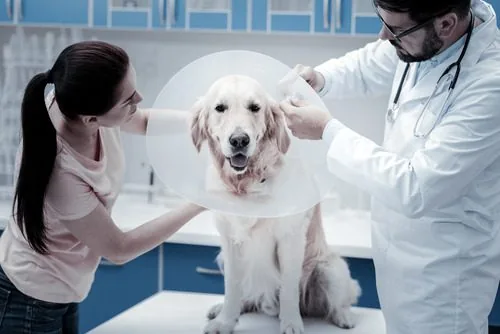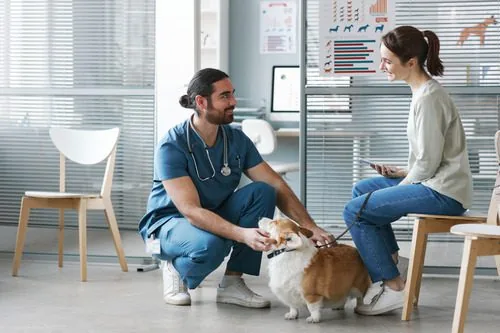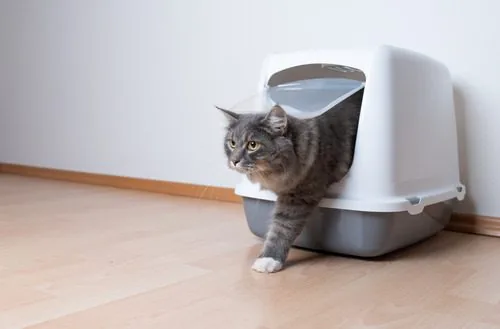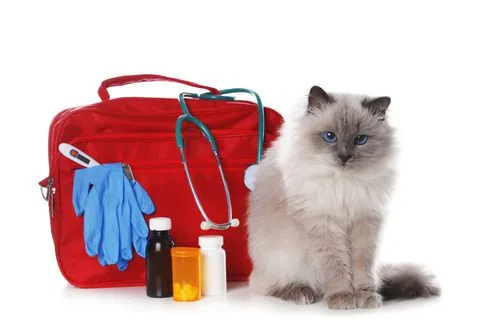Veterinary Diagnostic Imaging: How It Keeps Pets Healthy
When it comes to protecting your pet’s health, veterinary diagnostic imaging plays an essential role in identifying and addressing health concerns early. This advanced technology allows veterinarians to look beneath the surface, providing valuable insights into your pet’s well-being. At Veterinary Healthcare Associates in Winter Haven, FL, we utilize diagnostic imaging to provide accurate diagnoses and effective care for pets. In this blog, we’ll dive into how veterinary diagnostic imaging works, its importance in maintaining your pet’s health, and the various techniques available to uncover critical information about your pet’s condition. If you’re concerned about your pet’s health, call us today at (863) 324-3340 to schedule a consultation.
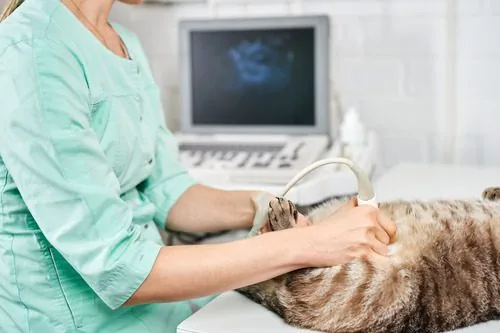
What is Veterinary Diagnostic Imaging?
Veterinary diagnostic imaging refers to the use of advanced imaging technologies to view the internal structures of a pet’s body. These tools provide your veterinarian with a clear picture of what might be happening internally without the need for invasive procedures. Whether your pet has a sudden injury, unexplained symptoms, or requires routine screening, diagnostic imaging offers a safe and effective way to investigate the issue.
How Diagnostic Imaging Works
The process involves specialized machines that emit waves (such as X-rays, soundwaves, or magnetic fields) to capture images of your pet’s internal organs, bones, or tissues. These images are analyzed by veterinarians to detect abnormalities such as fractures, tumors, or organ dysfunction. Common imaging techniques include X-rays, ultrasounds, CT scans, and MRIs, all of which offer unique advantages depending on the health concern being addressed.
Common Types of Veterinary Diagnostic Imaging
Veterinary diagnostic imaging encompasses several techniques, each suited to specific diagnostic needs. Below are the most commonly used imaging methods in veterinary medicine.
X-Rays (Radiographs)
X-rays are among the most widely used diagnostic tools in veterinary practices. They help veterinarians visualize bones, joints, and dense tissues, making them ideal for detecting fractures, arthritis, or foreign objects. For example, if your dog swallows a non-food item or your cat experiences a sudden limp, X-rays can provide immediate insights. The process is quick, non-invasive, and often performed without anesthesia, although sedation may be necessary if your pet is highly anxious.
Ultrasound Imaging
Ultrasound imaging uses soundwaves to produce real-time images of soft tissues and organs. This method is particularly useful for evaluating the heart, liver, kidneys, and abdominal structures. In cases of suspected pregnancy, blockages, or organ abnormalities, ultrasounds can offer detailed insights. Unlike X-rays, ultrasounds are completely radiation-free, making them safe for both young and senior pets.
CT Scans and MRIs
Computed tomography (CT) scans and magnetic resonance imaging (MRI) are more advanced forms of diagnostic imaging. They offer high-resolution images and cross-sectional views of internal structures, making them invaluable for detecting complex issues like neurological disorders, cancers, or deep-tissue injuries. While these methods are more time-intensive and require anesthesia, their ability to provide detailed images often leads to a more accurate diagnosis and tailored treatment plan.
Why Veterinary Diagnostic Imaging Matters for Pet Health
Early detection is key to successful treatment, and veterinary diagnostic imaging allows veterinarians to spot potential health problems before they become severe. Below are several reasons why imaging plays such an important role in veterinary care.
- Accurate Diagnosis: Veterinary diagnostic imaging provides a clear and precise picture of what’s happening inside your pet’s body. This accuracy minimizes guesswork and helps veterinarians pinpoint the underlying cause of symptoms, reducing the risk of misdiagnosis.
- Non-Invasive Evaluation: Procedures like X-rays and ultrasounds provide critical information without requiring surgical exploration, which means less stress and faster recovery for your pet.
- Monitoring Chronic Conditions: For pets with ongoing health conditions such as arthritis, heart disease, or cancer, diagnostic imaging allows veterinarians to monitor disease progression. Regular imaging helps adjust treatment plans as needed to provide the best possible outcomes.
- Preparing for Surgery: When surgery is necessary, imaging ensures that veterinarians have a detailed understanding of your pet’s anatomy. This preparation leads to safer procedures and better surgical outcomes.
The Safety of Veterinary Diagnostic Imaging
Pet owners often wonder whether diagnostic imaging is safe for their furry companions. The good news is that the majority of imaging techniques are designed to prioritize your pet’s well-being.
Radiation Exposure
While X-rays and CT scans involve low levels of radiation, the exposure is minimal and carefully managed to avoid harm. Veterinarians use advanced equipment and protective measures to ensure safety.
Anesthesia Considerations
For imaging methods like CT scans and MRIs, anesthesia is sometimes required to keep pets still during the procedure. Modern anesthesia techniques are highly safe, even for senior or medically fragile pets. Veterinarians will evaluate your pet’s overall health before proceeding to ensure the best care.
How Veterinary Healthcare Associates Uses Diagnostic Imaging
At Veterinary Healthcare Associates, we pride ourselves on offering state-of-the-art diagnostic imaging to support your pet’s health. Our team combines expertise with advanced technology to provide accurate diagnoses and personalized care.
- Our facility is equipped with the latest imaging tools, including digital X-rays, ultrasounds, and CT scans. These technologies allow us to quickly identify health issues and develop effective treatment plans.
- We understand that medical procedures can be stressful for both pets and their owners. Our team prioritizes your pet’s comfort throughout the process, ensuring a calm and supportive environment.
- Every pet is unique, and so are their medical needs. Diagnostic imaging helps us create tailored treatment plans that address your pet’s specific health concerns. Whether your pet requires routine screening or emergency care, we’re here to help.
How Diagnostic Imaging Contributes to Long-Term Wellness
Veterinary diagnostic imaging does more than address immediate health concerns—it contributes to your pet’s long-term wellness. By uncovering hidden conditions early, imaging helps prevent small issues from developing into major health problems. When used as part of regular preventive care, diagnostic imaging provides a comprehensive view of your pet’s health. This proactive approach can extend your pet’s lifespan and improve their quality of life.
Trust Advanced Imaging for Your Pet’s Care
When it comes to your pet’s health, accurate and timely diagnosis is essential. Veterinary diagnostic imaging offers a window into your pet’s well-being, allowing for precise evaluations and effective treatment. At Veterinary Healthcare Associates in Winter Haven, FL, we’re dedicated to using the latest imaging technologies to provide the best care for your pet.
If your pet needs diagnostic imaging or you have concerns about their health, call us today at (863) 324-3340 to schedule an appointment. Let our experienced team guide you through the process and ensure your pet receives the care they deserve.
Recent Posts
Laparoscopic Spay vs Traditional Spay: What’s Best for Your Dog?
Laparoscopic Spay vs Traditional Spay: What’s Best for Your Dog? When comparing a laparoscopic spay vs traditional…
Laparoscopic Spay: Everything You Need to Know
Laparoscopic Spay: Everything You Need to Know Laparoscopic spay, also called a “minimally invasive spay,” is an…
When is Dog Diarrhea an Emergency?
When is Dog Diarrhea an Emergency? Dog owners know all too well that occasional digestive upset isn’t…
Is Cat Constipation an Emergency?
Is Cat Constipation an Emergency? Cats are often private about their habits, especially when it comes to…
Feline Emergencies: Warning Signs Your Cat is Crying for Help
Feline Emergencies: Warning Signs Your Cat is Crying for Help Cats have a reputation for being independent,…
About Veterinary Healthcare Associates
Veterinary Healthcare Associates in Winter Haven, FL, was established over 30 years ago as Maxwell Animal Clinic by Dr. John Maxwell. Maxwell Animal Clinic was a one-doctor general practice offering preventive care, dentistry, and standard surgical services to the community. As the years passed, Maxwell Animal Clinic evolved into a thriving 10-doctor general, specialty referral, and emergency veterinary practice.

